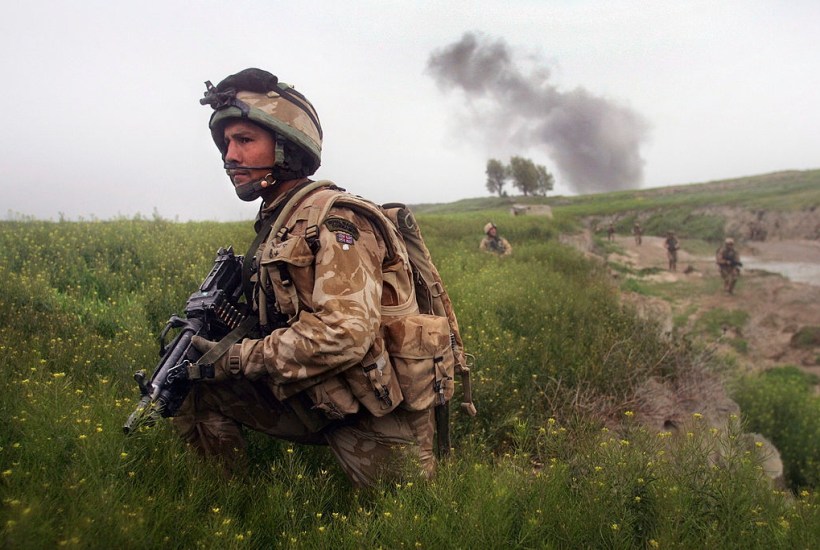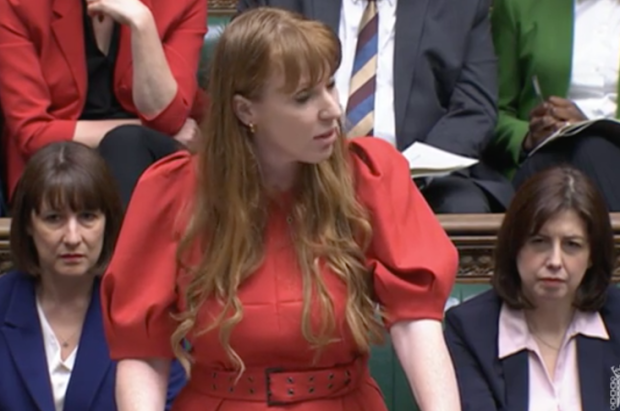When the Secretary General of Nato announced last week that all alliance troops were to be withdrawn from Afghanistan, it was made to look like a nice, clean, enunciation of a joint decision. The end date was set for 11 September, 2021 – 20 years after the terrorist attacks on New York and Washington – and it was in line with the oft-repeated alliance maxim: we went in together; we will come out together. Except that, on closer examination, it was all rather messier.
This was partly because the withdrawal from Afghanistan had actually been Trump’s policy, so here was Joe Biden, the anti-Trump, co-opting a policy from his predecessor (a policy Trump had been so keen on that he tried to accelerate the withdrawal after he lost the election). Biden then tried to detach it from Trump by slowing down the withdrawal date a little and expressing it in terms more comprehensible to the Washington establishment and to US allies.
Where Trump had essentially done a deal with the Taliban and set a withdrawal date of 1 May, Biden left the Taliban out of it and invoked the totemic date of 9/11. This does not mean, of course, that the withdrawal will not be completed a good deal sooner – once you announce a withdrawal, you might as well get on with it.
And where Trump had given every impression of acting according to his own lights, so incurring the additional hostility of his joint chiefs and the suspicion of Nato allies, the old political operator that is Joe Biden engaged in some cursory consultation, sent his Secretaries of State and Defence to Nato HQ in advance, and had the official announcement made from there. This had not, though, prevented him getting the news out earlier by dint of some judicious briefing to Washington reporters the day before – which did not please the allies.
In fact, Biden had to make a decision one way or another, given the rapid approach of Trump’s 1 May withdrawal date. And, whether it came from Washington or Nato, it was pretty low key for an announcement that a 20-year military involvement that had cost 4,000 allied lives was ending. Indeed, many people beyond Washington and Afghanistan might not quite have registered the news, given the considerable noises from Nato’s simultaneous dire warnings about Russia massing troops on the Ukrainian border, the death of the Duke of Edinburgh in the UK, and the Covid pandemic everywhere.
And distractions were needed not just because Biden was implementing a Trump policy. It was also because he was ordering an unconditional withdrawal – which he justified, correctly, by saying that setting preconditions would mean that the troops could be there forever. It was a risk Biden knew all too well, given that Barack Obama had been persuaded by General David Petraeus – against his election pledges and his better judgement – that what Obama really wanted was not a withdrawal, but a ‘surge’ with conditions attached before a withdrawal could take place. Ten whole years on we are now back to withdrawal, but without conditions – such as the achievement of women’s rights, democratic elections and eliminating the Taliban – meaning that this is, if not a defeat, quite a retreat.
Distractions were also useful for London, where the timing was hardly ideal. Imagine you were in government in London, you had watched the dismal failure of the UK’s operations in Helmand Province between 2006 and 2014, you knew that your armed forces had suffered 456 deaths in 20 years, with many more severely injured, but you had hung on in there. Your government had also just released a blueprint for foreign and security policy, setting future priorities even further from home, in the Indo-Pacific, and your Prime Minister was about to make a high-profile visit to India. In those circumstances, an announcement that the US had decided to leave Afghanistan, giving you no choice but to follow, was almost exactly what you did not need. Rather than showing the UK as a powerful, autonomous military actor and a valued ally, it showed the exact opposite.
It also reminded an unhappy British public about a costly conflict it had rather forgotten. An informed, ground-up view of the UK’s Afghan involvement was given to the BBC by Lucy Aldridge – whose son was among the youngest casualties – and who blamed successive governments for moving the goalposts and lacking an exit strategy.
All of which might explain why the UK’s Foreign and Defence Secretaries followed the US example by changing the subject to the iniquities of Russia and China, rather than issuing a joyous pronouncement to the effect of: hooray and thank goodness, our boys and girls are coming home. Or did I miss something there?
Probably not. A full day and a half elapsed between Nato’s formal announcement of the Afghan withdrawal and a response from the UK’s Chief of Defence Staff, General Sir Nick Carter. And what a subdued, unenthusiastic response it was. I cannot remember such open acknowledgement of UK-US military policy friction in recent decades – or such an abject admission by the UK of its defence dependence on the US.
What Carter said was that the unconditional withdrawal was ‘not a decision we had hoped for, but we obviously respect it and it is clearly an acknowledgement of an evolving US strategic posture’. In other words, the UK had opposed Biden’s decision – or would have done, if asked (which is not clear). Also, that it was Washington’s ‘strategic posture’ that had ‘evolved’, not the UK’s. He suggested there was a real danger that progress made could be lost and that there could be a return to civil war, with the Taliban maybe returning to power.
Given that the UK officially has only 750 troops in Afghanistan at present, and most of them are there in a training capacity, to dissent from the US position so openly seems quite an ambitious position for the UK military to take. True, Carter also hazarded a more positive gloss on Afghanistan’s future, insisting that the objective in going into Afghanistan, ‘to prevent international terrorism emerging from the country’, had been achieved which was ‘great tribute to the work of British forces and their allies’. He also said that Afghan forces were ‘much better trained than one might imagine’ and that the Taliban ‘is not the organisation it once was’, so that ‘a scenario could play out that is actually not quite as bad as perhaps some of the naysayers are predicting.’
None of this, though, amounts to a resounding vote of confidence in Afghanistan’s future. And it suggests two conclusions. Getting along with President Biden may have seemed simpler for the UK than keeping up with Donald Trump, but it is not going to be a proverbial walk in the park. And second, it offers a salutary reality-check as to whether, even when the UK has reconfigured its armed forces and refocused on hi-tech capabilities, it can make itself any more autonomous as an international military actor or such an indispensable ally to the US that its views on staying or leaving a war have to be taken into account.
<//>
Got something to add? Join the discussion and comment below.
Get 10 issues for just $10
Subscribe to The Spectator Australia today for the next 10 magazine issues, plus full online access, for just $10.



















Comments
Don't miss out
Join the conversation with other Spectator Australia readers. Subscribe to leave a comment.
SUBSCRIBEAlready a subscriber? Log in